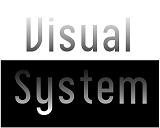York Catholic Teachers Collective Agreement
The York Catholic Teachers Collective Agreement: Understanding the Latest Developments
In Ontario, York Catholic District School Board (YCDSB) is one of the largest school boards that have been providing quality education to its students since 1841. The YCDSB has been a pioneer in promoting excellence in education and has been successful in creating a safe and inclusive learning environment for its students.
The success of the YCDSB is largely due to the dedicated efforts of its teachers who work tirelessly to impart knowledge and skills to their students. The school board and the teachers union work collaboratively to negotiate collective agreements that address the needs of all parties involved.
The latest collective agreement between the YCDSB and the York Catholic Teachers Association (YCTA) has come into effect for the 2021-2024 academic years. This agreement includes significant changes to the previous agreement, including an increase in salary, a reduction in class sizes, and improvements to working conditions for teachers.
One of the most significant changes in the new agreement is the increase in salary. The agreement has a salary increase of 2% per year for the next three years, which is an improvement from the previous collective agreement. This increase in salary will ensure that teachers are fairly compensated for their hard work and dedication to their profession.
Another important change is the reduction of class sizes. The YCDSB has agreed to reduce class sizes in all grades from kindergarten to grade 12. The reduction in class sizes will have a significant impact on the learning environment for students, enabling teachers to provide more personalized attention to each student.
In addition to the above, the new collective agreement includes several other improvements to working conditions for teachers. These include a reduction in the number of mandatory meetings outside of instructional time, increased preparation time, and the provision of technology to enhance teaching and learning.
The new collective agreement is a testament to the YCDSB`s commitment to providing a quality education for its students and creating a supportive work environment for its teachers. The school board and the YCTA have worked collaboratively to negotiate an agreement that benefits all parties involved and ensures that YCDSB continues to be a leader in education.
In conclusion, the York Catholic Teachers Collective Agreement highlights the importance of collective bargaining in promoting a positive work environment for teachers. The agreement has ensured that teachers are fairly compensated for their work, and that they have the necessary resources and support to provide quality education to their students. The YCDSB’s dedication to its teachers and students is commendable and sets an example for other school boards to follow.
